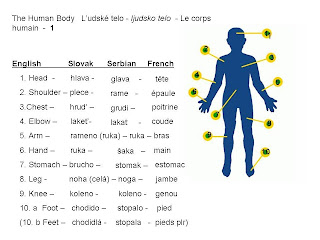Video with Verb Conjugations
This video is made for you to practise conjugating Serbian verbs in the Simple Present tense. For more advanced students, this video lesson can be also used for making sentences in the past or future tense or in the conditionals.- imati = to have
- videti = to see
- voleti = to like
together with nouns which denote:
- places
- plants and animals
- colours
- entertainment

.png)















